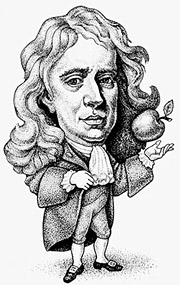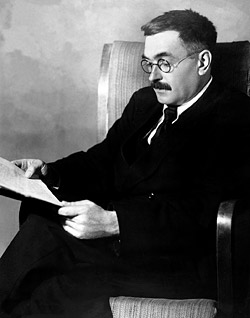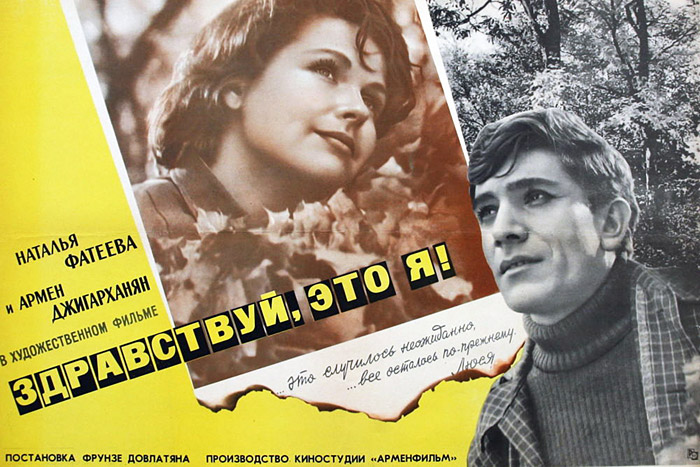
Electronic english version since 2022 |
The newspaper was founded in November 1957
| |
To World Science Day
Sketches about physicists
Science should be fun,
exciting and easy.
So should be scientists.
P.L.Kapitsa
 The Case of Newton's Apple
The Case of Newton's Apple
About the case of Newton's apple - Director of the Mint, alchemist, philosopher and geometer, Esq.
"It was good out of town! It was summer, the rye had already turned yellow, the oats were green, the hay was swept into haystacks; a long-legged stork was walking along the green meadow and chatting in Egyptian - he learned this language from his mother. With about the same mood, the eighteenth-century memoirist William Steckley begins the story of how the author of the Mathematical Principles of Natural Philosophy told him about what had made him discover the law of universal gravitation.
So, 15 April, 1725, London, heat. "Together with Sir Isaac we were sitting in the shade of the spreading apple trees and drinking afternoon tea. And then he remarked, among other things, that in the same situation the idea of gravitation had first occurred to him. It had been caused by the fall of an apple that had fallen from a branch while he had been sitting deep in thought."
Around the same time, the subversive element Voltaire, expelled from his homeland, landed on the coast of England that was already known as the first playwright of France (but remained in the memory of posterity as the author of the Philosophical Tales, written already at a respectable age as fun). Here, in the British Isles, Locke, Newton, Bolingbroke reigned and the great Frenchman never tired of marveling at the atmosphere of free-thinking and spiritual freedom.
He no longer found Newton, but he met his niece Catherine Barton that was consid-ered to be the most beautiful lady in London and Newton at the same time added: and the smartest. In his declining years, Voltaire recalled: "In my youth, I thought that Newton owed his success to his own merits. Nothing of the kind: Fluxions and universal gravitation would be useless without this lovely niece." Voltaire heard the story about the apple from her that was already turning into a joke.
Returning to the Continent, Voltaire made this anecdote public in France and added from himself that the apple had hit Newton on the top of his head.
John Conduit, niece's husband, son-in-law and assistant, associated Newton's in-sight with the plague that struck London and thus brought the legend of the apple to the highest degree of plausibility: "In 1666, Newton had to return from Cambridge for a while to his family estate Woolsthorpe because of the plague in London. Once when he was having a rest in the garden, at the sight of a falling apple, the thought occurred to him that the force of gravity is not limited to the surface of the Earth, but extends much further and, per-haps, extends to the Moon - what, you ask, is the Moon worse than an apple?"
An interesting version was also put forward by the famous Soviet and Russian mathematician Vladimir Igorevich Arnold: he suggested that the true apple that fell on the head of Isaac Newton was his scientific opponent Robert Hooke. Thus, the testimonies of witnesses diverge, versions grow and the final verdict remains with future generations.
We know the apple of discord that caused the first world war in history, we know what price Adam paid for the apple from the tree of knowledge ("Old Testament") and how Hercules ended his campaign for rejuvenating apples ("Myths of Ancient Greece", the twelfth feat of Hercules) and what happened to the apple of William Tell (it was pierced by an arrow). But what do we know about the fate of Newton's apple? Was it eaten or rotted, and what happened to the seeds, did they sprout? But the fate of the apple tree that gave birth to it was traced and here's how. A teacher at York University, Mr. Keesing, during a private investigation, established that the legendary apple tree had been the only one in Newton's garden and in his article written in 1998, the researcher cited drawings with its image.
Newton's apple tree survived the classics of modern natural science by almost a hundred years and died from a lightning strike in 1820, but did not disappear without a trace: an armchair was made from its wood that is in a private collection today, like an old street lamp, a cracked darning needle, a resistant tin soldier and other characters of An-dersen's fairy tales.
Dirac and the sea

It happened a long time ago, when quarks were free and despised confinement and the vacuum had a great many symmetries, none of which was broken. And there was no world in which we live, but only Dirac, who stood on the shore of the sea of elementary par-ticles and solved the task of fish that were caught and taken away by the fishermen, so that there was no one on the shore. And no matter how he solved this task, the number of fish turned out to be negative.
So Dirac stood, no longer deciding anything, but only thinking about elementary par-ticle physics as about a woman bestowing or refusing her favors. Afterwards, he thought of a woman as a sea and of the sea - as physics of elementary particles and the feeling that the truth was somewhere nearby filling him with hidden energy. When you have been studying physics for many years and doing your job well, the anticipation of the discovery always comes a little earlier, ahead of the discovery itself. There, on the other side of the vacuum, he saw many particles, a sea of particles with negative energy and falling down and propping up the abyss. The sea laughed...
Shortly after Dirac's paper had been published, a new particle was discovered and our world doubled overnight; general rejoicing was obscured by one simple circumstance: both worlds, one mirror image of the other, were unequal. No matter how they improved the vacuum later, no matter how they renormalized it, it remained skewed. This is how our Universe was born. And there were atoms and there were stars.
The dream of Academician Fock

Academician Fock looked like a cat in appearance. Well-fed, well-groomed and sat-isfied with himself. Once he was arrested. He was suspected of family ties with the German barons Focks. And it was in 1937.
Kapitsa saved him. Fock served several days, but even that was enough to remem-ber what happened for the rest of his life. During these days, his son writes in his memoirs about his father, Vladimir Aleksandrovich managed to turn against himself all three crime investigators that examined him. The situation is Schweik's: "Can you imagine what could happen if you ..." the crime investigator began a subtle psychological game and in re-sponse - like a butt on the head: "I have no imagination."
Kapitsa wrote a letter to Stalin, in which he said that Fock did not hear well, it was difficult to communicate with him even in everyday life, not like in a secret organization and he could be safely let go. And Fock was released.
People's Commissar of Internal Affairs N. I. Yezhov personally came to release him.
"But they told me that my guilt was fully proven," Fock said.
"Comrades have hurried up," the People's Commissar said.
Fock asked if the arrest would affect his election to the Academy and received an assurance that it would not.
Indeed, in 1939, he became an academician. As his son recalls, before the elec-tions, Vladimir Aleksandrovich had a dream that the elections had already taken place and he passed, but it turned out that together with him, under the name Fog, their housecat ran for the Academy - and also passed. And dad, as Fock Jr. writes, thought in a dream: it's embarrassing, the surnames are similar and the address is the same, they will confuse. And when the news of the election came, Fock went to the kitchen and shook the cat's paw. Since then, the cat's name was none other than Academician and the former nick-name was completely forgotten, so Fock Jr. could not remember it.
Sometimes they say that Fock had no sense of humor. Indeed, it is difficult to agree with this.
Particles for Nita
Nita was the name of Shostakovich's wife. And the particles were discovered for her by the brothers Alikhanov and Alikhanyan. One of them was in love with Nita and dreamed of reciprocity. And Shostakovich behaved like a boy: he saw nothing but his career and when he saw the light, he never let his wife go away from him even a single step. Nita jok-ingly promised her admirer: if you discover a new particle, then maybe I will marry you. And he discovered. And not just one, but a great many. They appeared to him in cosmic rays on Mount Alagez. The particles flew towards the Earth and changed their mass in flight and the brothers called them varitrons.
The war was over, but Soviet physicists still worked for the defense of the country. Kurchatov was responsible for the work on the first Soviet atomic bomb, the eldest of the brothers, Alikhanov was Head of one of the leading laboratories of the Atomic Project, to-day called ITEP and named after Kurchatov. Kurchatov did not delve into the intricacies of the experiment (although he heard the voices of doubters) and nominated the brothers for the Stalin Prize.
And they were awarded this Prize. The writer A.N.Tolstoy donated the Prize to the defense fund. The philosopher A.F.Asmus did the same. The aircraft designers A.Ya.Yakovlev, S.V.Ilyushin, the breeder P.N.Konstantinov, the metal physicist F.M.Galperin...
But the war ended and the brothers bought an American car from the Armenian re-patriates. The youngest had one final step - to make an offer, get consent and go on a honeymoon trip, but ...
FIAN doubted the purity of the experiments. The very idea of particles with variable mass looked wild. The results of the brothers were checked, including by themselves, until the mid-1950s, but they never got convincing confirmation. At this time, the so-called "birth explosion" occurred in physics: particles fell down as if from a cornucopia and the brothers said that these were the very varitrons. They didn't admit they were wrong. But Nita had passed away and it didn't matter.
A distant echo of this story that mixed pride and prejudice, love and physics of ele-mentary particles, the joy of victory and the bitterness of defeat was the film of the Arme-nian director F.Dovlatyan. Armenians say like this: this is a film about Alikhanyan. The main character was played by Dzhigarkhanyan, his beloved that is sent to the front - by Natalya Fateeva and the young girl that recognized the hero 20 years later - the still very young Margarita Terekhova. The film is called "Hello, it's me!" and it is the most successful film about physicists made in the Soviet Union, no matter what they say about "Nine Days of One Year".

Aleksandr RASTORGUEV